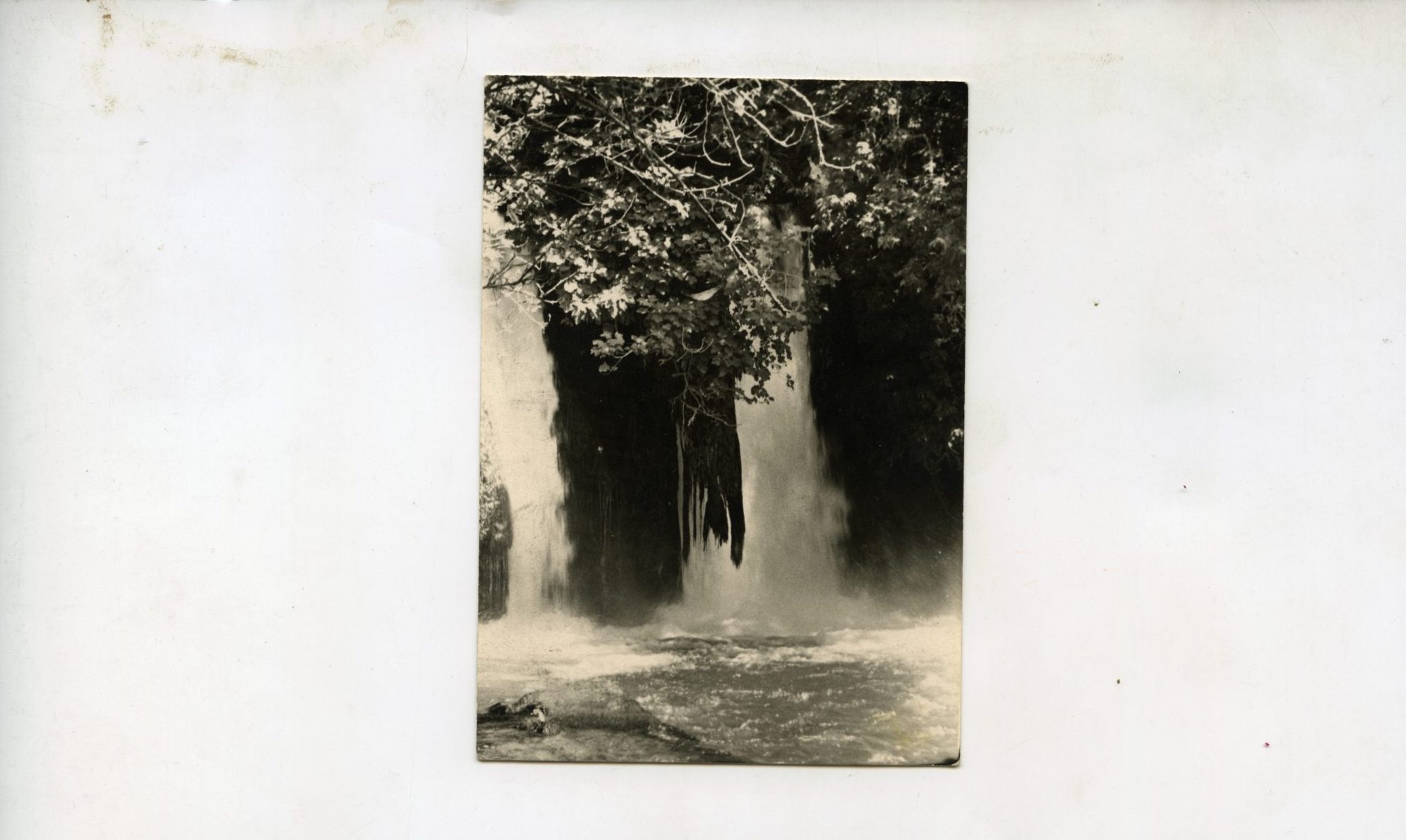Talk by Jumana Emil Abboud: Untangling divinations in water | 29 March 2023 | 13:00-15:00 | The Hague [Register to join]

Based between Jerusalem and London, artist Jumana Emil Abboud draws on Palestinian folklore, magic, mythologies, and supernatural elements as a political and imaginary framework to re-appropriate and reinterpret dispossessed landscapes and histories. Her internationally exhibited practice ranges from drawing and video to performance and painting. By placing a strong emphasis on community-driven and participatory aspects, she offers a poetic and collective method of worldbuilding, as well as a means to counter the decades-long erasure of space and memory in Palestine. (Nat Muller)
Event Description
Abboud will share from the Water Diviners practice, a project she initiated three years ago exploring entanglements with water across time and within Indigenous heritage. Water Divining motivates collaborative attending to water – water’s lived and mythicized environment – through a collection of walks, rocks, vegetations, memories, fears and triumphs, words and languages.
The focus of Abboud’s Water Divining is situated in the Palestinian territories, and more specifically, in the village of ‘Ein Qiniya in the West Bank. Abboud works closely with the community of ‘Ein Qiniya (and in gratitude to the generosity of Sakiya art / science / agriculture), drawing stories from seven natural water sources located in endangerment across the Abu Al-Adham hillside. Since 2020, the Water Diviners project has expanded in diverse, intergenerational, multi-lingual bodies, where workshops rhythm the experience of water divining, and where imagination of the displaced is nurtured, carried, and threaded into story-being. It is a challenging process for it functions within a state of urgency, and from such a state, it devises tools for finding care and legitimacy of the untold forbidden voices. The storied relationship with water propels continued entanglements, merging folk lore and present-day stories, contrived from an assemblage of water legacies beyond indicative space and time. To date, Water Divining workshops have occurred in Paris, Cologne, Amman, Kassel and Dubai, and with the generosity of Bétonsalon – Center for Art and Research, Temporary Gallery, Darat al Funun, Documenta fifteen, Jameel Arts Centre, and Slade School of Fine Art.
About the presenter
Jumana Emil Abboud is an artist based between Jerusalem and London and is currently pursuing a practice-led PhD at Slade School of Art, University College London. She has exhibited at biennales in Lyon, Sharjah, Venice, Istanbul and Sydney, Documenta, Jameel Arts Centre, Casco Art Institute, Seoul Museum of Art – SeMA, andDarat al Funun, among other institutions. Her art practice explores personal and collective stories and mythologies where folklore and contemporary experience exist in an integrated constellation that embraces fabulation, collectivity, dispossession, and entitlement. Using biography, heritage, and ancestry in symbiosis to rematerialize our relationship to land and water, particularly as traversed through knowledge that is oral, intangible, collaborative.
About the respondents:
Nat Muller is an independent curator, writer and academic who completed her AHRC-funded PhD Lost Futurities: Science Fiction in Contemporary Art from the Middle East at Birmingham City University in 2022. She is the curator for the screening A Grain of Sand in the Mountain’s Belly at LAB111 on 28 March, which ReCNTR is co-presenting.
Cristiana Strava is Assistant Professor in the School of Middle Eastern Studies at Leiden University. She was trained as a visual anthropologist at Harvard where she was part of the Sensory Ethnography Lab, and received her PhD from SOAS, University of London. Her multimodal work sits uncomfortably at the intersection of ethnography, Marxist geography, and studies of the (post/colonial) state. .
When and where:
29 March 2023 | 13:00 – 15:00
Room A2.02 | Schouwburgstraat Building | Leiden University
Schouwburgstraat 2, 2511 VA The Hague
Image credit: Baniaas waster, the Golan, archival photograph, anonymous, courtesy of Jumana Emil Abboud.